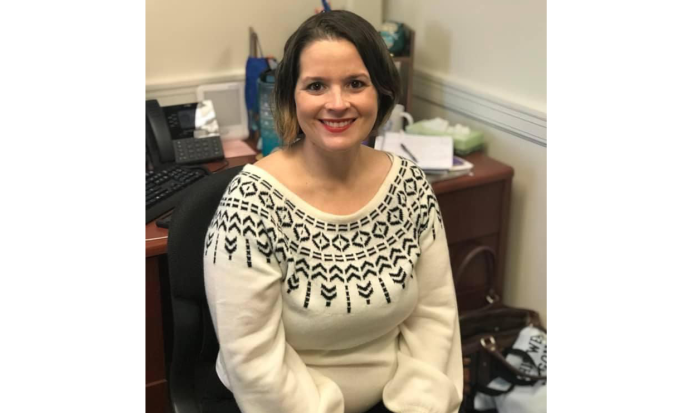
QCC’s Massachusetts Inclusive Postsecondary Education (MAIPSE) program is bringing increased access to higher education for adults with significant disabilities.
Part of Student Accessibility Services (SAS), the state-funded MAIPSE program serves high school students aged 18-22 with severe intellectual or developmental disabilities or severe autism spectrum disorder. Students in the program are fully enrolled at QCC but nonmatriculated.
“I really believe that college should be for anyone who wants to attend,” said Student Accessibility Services Coordinator Cassandra Estey. “There are other benefits to higher education besides classroom learning - it’s the social learning and skill building.”
In 2022, Massachusetts required state colleges and universities to have a policy addressing this population. QCC has gone above and beyond to have more than just a policy. Estey has done an incredible amount of work to research, prepare for and implement QCC’s MAIPSE program. What started with two students in the spring of 2024 has grown to 21 students from seven high schools, making QCC’s program one of the largest in the state.
According to Estey, individuals with significant disabilities are some of those most likely to be unemployed - not due to a lack of motivation, but rather a scarcity of support to train for and gain employment.
QCC’s MAIPSE program offers these individuals access to learn new and different skills as well as make connections in the community. One student in the program excelled in the culinary courses that take place at the Worcester Senior Center and was able to secure a job at another local senior center.
Many students in the MAIPSE program have been in self-contained classrooms throughout the majority of their lives. Being in a QCC classroom offers an integrated setting and room for growth. Staff who work with MAIPSE students have noticed an increase in their communication skills, especially when interacting with non-disabled adults in the community. Estey noted that these interactions can improve communication skills of non-disabled adults as well, especially those coming directly from high school.
In addition to taking courses, MAIPSE students have access to all of QCC’s resources and receive individualized support. A paraprofessional from their high school can attend QCC classes with them to see where time management and organization strategies are needed. Estey offers academic coaching to address specific challenges and goals. Students can also attend workshops for goal setting, executive function skills and navigating college processes.
Estey acknowledged the partnering schools for their dedication to students through staffing, scheduling and transportation. These strong partnerships are another contributing factor to the success of the program.
The journey doesn’t have to stop when participants turn 23. Estey mentioned a former MAIPSIE student who went on to take a full-time course load, earning an impressive 4.0 GPA. SAS has begun work on serving students who age out of the program, as well as creating a comprehensive transition program for students to earn credentials.
Through the development of additional initiatives and existing programs like MAIPSE, SAS continues to support and empower students with disabilities on their educational journeys.
